Israel-Hamas War: What happened on day 80?
Roads in northern Israel closed as Israel-Hezbollah clashes intensify • IDF reveals how it found the bodies of five Gaza hostages.
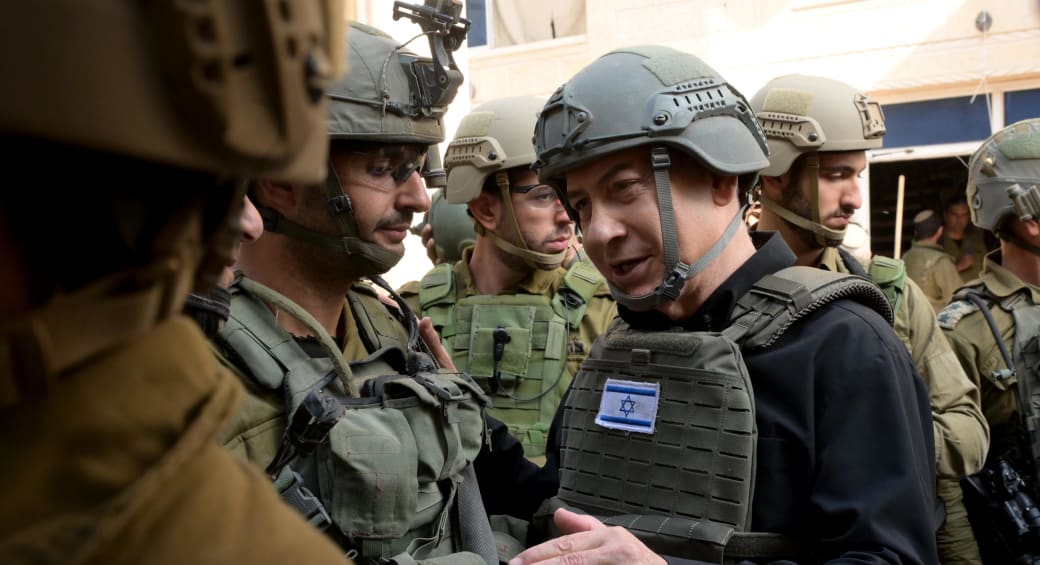
IDF inspects feared terror tunnels in Israeli towns near West Bank
The results of the inspections will be examined in further detail by experts and presented to the public in due course, the regional council stated.
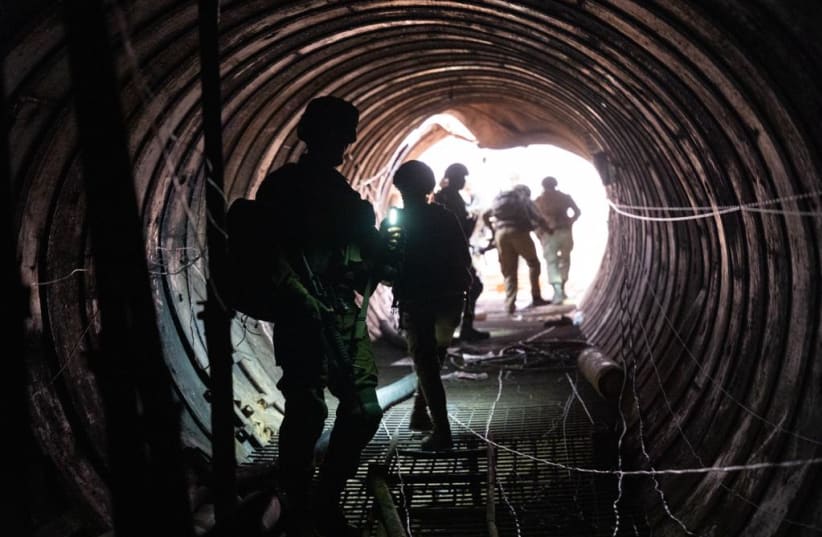
A host of Israeli regional councils located along the Seam Line, near Israel's border with the West Bank, announced the creation of an emergency forum on Monday to protect themselves from threats beyond the border after residents complained of tunnels being built under their homes for terror purposes.
Local residents claimed that they heard digging beneath their homes alongside explosion sounds coming to them from the Palestinian city of Tulkarm.
Last week, a resident of Bet Hefer told 103FM in a radio interview that locals live in "a constant state of insecurity.
"The settlement is targeted with direct and indirect fire almost every day. We can show you pictures of shells from our yards."
Five inspections show no signs of terror tunnels, council says
The Emek Hefer Regional Council said in a statement released this week that it takes the residents' reports seriously and has carried out five inspections in cooperation with Israeli security forces thus far, in which no evidence of tunnel digging has been found.
The results of the inspections will be examined in further detail by experts and presented to the public in due course, the regional council stated.
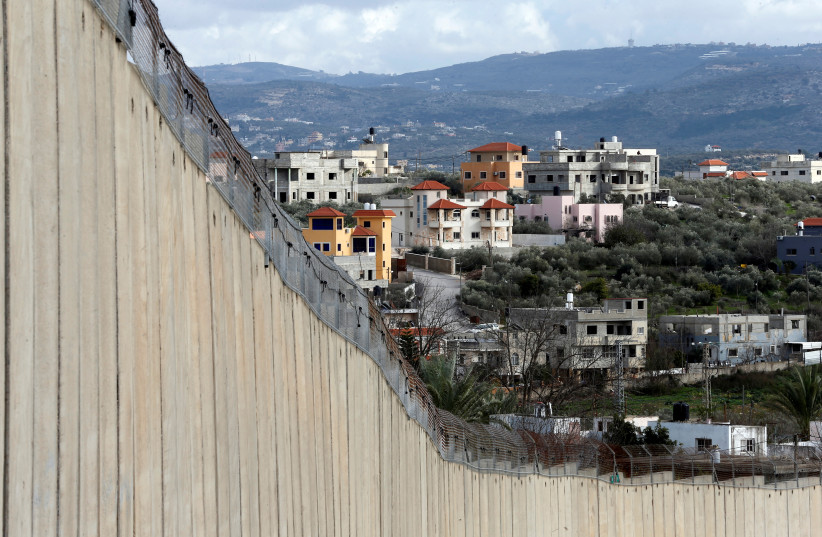
As part of the newly created emergency forum, the regional councils are cooperating with the IDF on a host of preemptive measures to be carried out immediately to reinforce the Seam Line towns' security.
These security measures include operations carried out by Israeli forces in the area, construction of a second line of defense from the West Bank in the form of a reinforcement of the security fence, and other technological improvements.
'It sounds exactly like Hamas tunnel digging'
Matan Buchner, a resident of Bat Hefer, told Kan Reshet B on Monday that local residents suffer from "constant digging noises for a number of years, we have been complaining of residents hearing knocking under their homes.
"It sounds exactly like Hamas tunnel digging, as they did in the North and South," Buchner added.
Go to the full article >>Israel needs to prepare for food crisis if Hamas war continues - industry chiefs
The government must have a strategy prepared within which goals will be set to ensure local production of at least 75% of the required food in order to prevent a food crisis.
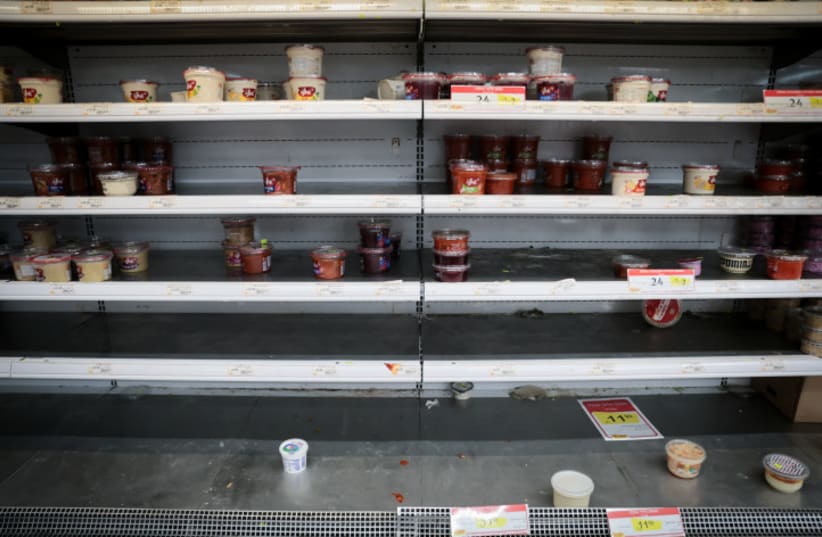
The Food Industries Association of Israel (FIAI) warned that the ongoing conflict between Israel and Hamas in Gaza, and along with an increasing threat from Houthi rebels along the Bab al-Mandab Strait, that unless immediate action is taken by the Israeli government, Israel's food security is in danger.
Dr. Ron Tomer, the current president of the Manufacturers’ Association of Israel (MAI) and Dodi Manevich, Chairman of the Food Industries Association, appealed to Chairman of the Economy Committee in the Knesset MK David Bitan with a request to hold an emergency discussion on the subject of food security and Israel's emergency stockpile.
The two warned that the government must have a strategy prepared within which goals will be set to ensure local production of at least 75% of the required food in order to prevent a food crisis.
The FIAI stated that approximately 90% of Israel's food production facilities are located in the conflict zones in the north and south, and despite the security tensions, the facilities are continuing to operate while they are exposed to rocket barrages from Gaza or Lebanon and many of their employees have been evacuated to remote areas.
At the outbreak of war following the October 7 massacres, supermarkets and shops across Israel saw panic-buying ahead of the expected Israeli military retaliation. Water, toilet paper, and other essentials quickly sold out throughout the countrym and limits were put in place to prevent people from overbuying supplies.
Reservist IDF soldiers: Israeli universities ignoring our needs
One activist highlighted the profound impact the universities' plans of action will have on reservists, predicting high failure rates and increased dropout from studies.

Israeli academic institutions unveiled a two-phase plan for the academic year's start on Sunday, designed to accommodate both regular students and reservists.
This move aimed to address their demands and the military's requests. Despite these efforts, reservists have rejected the plan, deeming it inadequate. Aviv Astrook, a 24-year-old student at Afeka College and a reservist in the combat engineering corps, is outspoken about this. She, along with many others, found the solution lacking and threatened to escalate the protest.
The plan, a result of extended discussions with the IDF, set the year's start for December 31, a significant delay from the original date. This marks an end to a series of postponements, totaling five, with previous dates set for October 22, November 5, December 3, and December 24. The ongoing conflict and the delay in the widespread release of reservists meant that university heads eventually concluded that further delays would make a semester impossible.
The proposed solution includes an additional "phase" for opening the year, featuring a material catch-up marathon. The Council of University Heads and the Council of Colleges, after failing to secure a commitment for troop release by January 21 from the IDF Chief Reserve Officer, have refrained from announcing a specific start date. Universities like Ben-Gurion, Hebrew University, and Tel Aviv University, however, have indicated that this opening of the academic school year is likely to begin on this date, although the exact timing of reservists' release remains uncertain.
Astrook criticized the plan vehemently. "Reservists returning from three months of operational activity to a rushed academic catch-up is insane. It demonstrates a severe misunderstanding of the situation by the institutions. They aren't in touch with the fighters and fail to grasp their circumstances. Many are mentally strained; this approach is unfeasible. The decision-makers are out of touch, thinking they know our needs.

Reservists require personalized support and gradual reintegration with psychological assistance, not just a one-size-fits-all catch-up program."
The institutions have pledged support for students returning from combat, but reservists like Astrook remain doubtful. Through her Instagram protest page, titled "The Struggle of Students in Uniform," she voiced the collective anxiety, relaying thousands of messages from concerned reservists across various institutions.
They expressed skepticism towards the institutions' promises, fearing inadequate support and the burden of self-reliance. Astrook highlighted the profound impact this has on reservists, predicting high failure rates and increased dropout from studies. She also underscored the disillusionment amongst reservists, fearing that the sacrifices of enlisting are not being duly recognized or compensated.
Trying to do school work while on active duty
The situation's severity is also evident in the stories of soldiers attempting to study amidst active duty. Another student, named Shahar, recounted an incident where a fellow soldier, while guarding an armored vehicle in Gaza, sought to review the year's academic material. Astrook echoed similar experiences, highlighting the impracticality and immense difficulty of such endeavors.
Though reservists explained they understood the necessity of continuing the academic year for economic, professional, and symbolic reasons, they questioned the chosen approach. While academic officials believed the current plan is the lesser of two evils, born out of deep consideration for student welfare, Astrook, and her peers said they felt that not all options have been thoroughly explored. They pointed to institutions like the Technion, Azrieli College, and Shamoon College of Engineering, which opted for additional delays in line with the IDF's request, as examples of more considerate approaches.
Go to the full article >>Netanyahu: IDF fighters in Gaza told me to keep going

Prime Minister Benjamin Netanyahu visited the Gaza Strip on Monday, he told fellow Likud members in a faction meeting at the Knesset.
"I just returned from Gaza; I met a division of reservists on the field," he told his faction. "All of them asked me for one thing only: We must not stop; we must keep going until the end," he said, in reference to the IDF's war on Hamas in Gaza.
"The papers and television studios said we are stopping; They also said we would stop after the first hostage deal - and we kept going," Netanyahu continued. "We do not stop; we keep fighting, and we will be deepening the fighting over the coming days; this will be a long battle, and it is not close to being over."
Go to the full article >>Blast heard near Syria's Damascus International Airport - report

Explosions were heard in the area of Set Zaynab, in the Damascus countryside, on Monday afternoon amid reports of an alleged Israeli strike in Syria, local media outlets reported.
Footage shared on social media showed a cloud of smoke near the Damascus International Airport, a site targeted frequently due to its use by Iranian proxies in the region.
#عاجل | قصـ ـف "إسرائيلي" استهدف منطقة الأهداف في محيط #دمشق على طريق مطار دمشق في #سوريا pic.twitter.com/DZ3ve1Qonx
— قناة القدس (@livequds) December 25, 2023
This is a developing story.
Go to the full article >>Hamas, PIJ reject giving up power in Gaza for ceasefire with Israel
Egypt proposed a "vision" that would involve a ceasefire in exchange for the release of more hostages and lead to a broader agreement involving a permanent ceasefire.
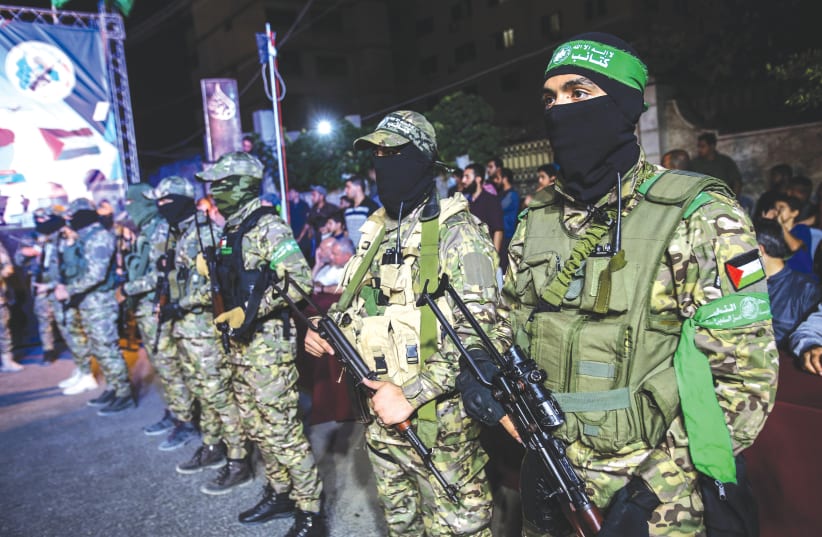
Hamas and the Palestinian Islamic Jihad have rejected an Egyptian proposal that they relinquish power in the Gaza Strip in return for a permanent ceasefire, two Egyptian security sources told Reuters on Monday.
Both groups, which have been holding separate talks with Egyptian mediators in Cairo, rejected offering any concessions beyond the possible release of more hostages seized on October 7 when militants broke into southern Israel, killing 1,200 people.
Egypt proposed a "vision," also backed by Qatari mediators, that would involve a ceasefire in exchange for the release of more hostages and lead to a broader agreement involving a permanent ceasefire along with an overhaul of leadership in Gaza, which is currently led by Hamas.
Egypt's three-stage plan for Gaza peace
Egypt proposed elections while offering assurances to Hamas that its members would not be chased or prosecuted, but the Islamist group rejected any concessions other than hostage releases, the sources said. More than 100 hostages are still believed to be held in Gaza.
A Hamas official who visited Cairo recently declined to comment directly on specific offers of more temporary humanitarian truces and indicated the group's rejection by repeating its official stance.
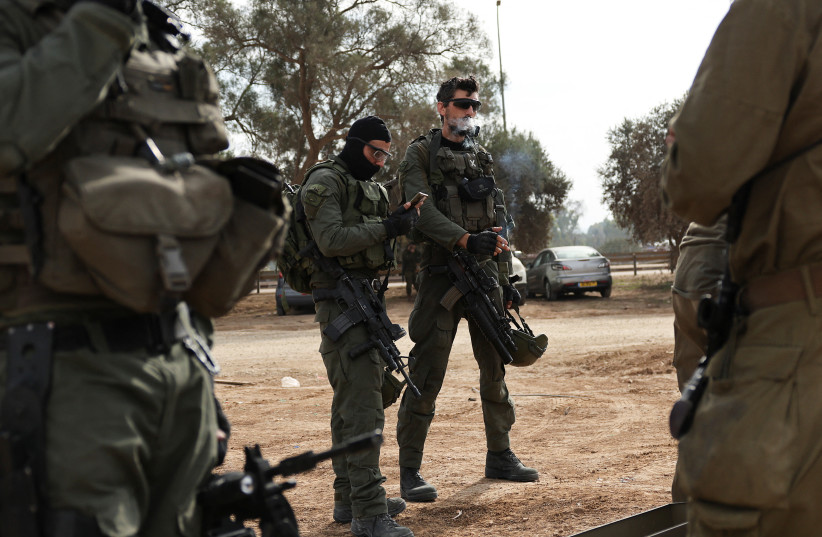
"Hamas seeks to end the Israeli aggression against our people, the massacres and genocide, and we discussed with our Egyptian brothers the ways to do that," the official told Reuters.
"We also said that the aid for our people must keep going and must increase and it must reach all the population in the north and the south," the official said.
"After the aggression is stopped and the aid increased we are ready to discuss prisoner swaps," he added.
Islamic Jihad in Cairo for talks
Islamic Jihad, which also holds hostages in Gaza, has echoed that stance.
An Islamic Jihad delegation led by its leader Ziad al-Nakhala is currently in Cairo to exchange ideas with Egyptian officials over prisoner swap offers and other issues, but an official said the group had set an end to Israel's military offensive as a pre-condition for further negotiations.
Islamic Jihad insists, the official said, that any prisoner swap must be based on the principle of "all for all," meaning the release of all hostages held in Gaza by Hamas and Islamic Jihad in return for freeing all Palestinians jailed in Israel.
Before the war, there were 5,250 Palestinians in Israeli jails, but the number has now grown to around 10,000 as Israel has arrested thousands more in the West Bank and Gaza since October 7, according to the Palestinian Prisoners Association.
Go to the full article >>IDF destroys Hamas weapons, concrete factory in Khan Yunis
Israeli forces also destroyed dozens of Hamas tunnels in Khan Yunis in recent weeks.
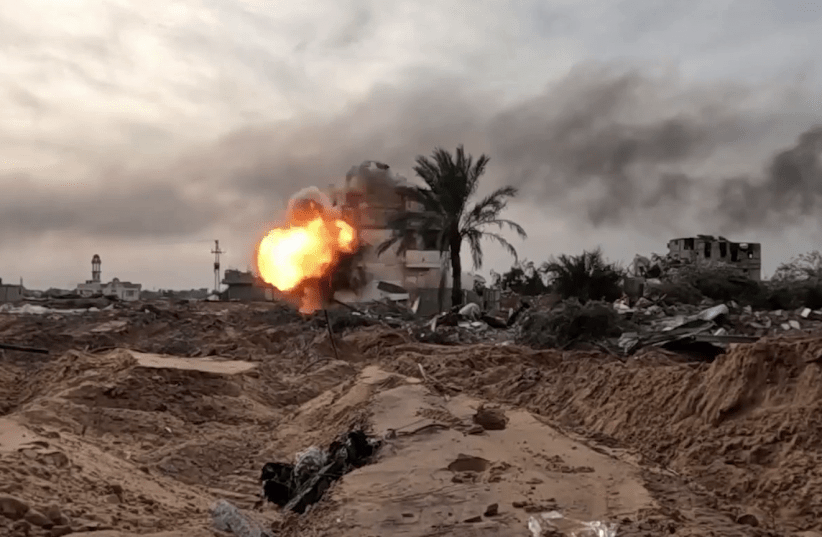
The IDF destroyed a lathe used by Hamas to produce weapons and a concrete factory used to produce concrete for tunnels in Khan Yunis in southern Gaza, the IDF Spokesperson's Unit said on Monday.
The combat team of the 4th Brigade has operated in recent weeks to clear areas of Khan Yunis and establish an operation hold on the area. The soldiers have carried out precision raids, eliminating dozens of terrorists and destroying about 100 terrorist targets.
Go to the full article >>Rachel Edri from Ofakim reveals her counterterrorist cookie recipe
"I wrapped them around my little finger, those nasty monsters," said Rachel Edri.
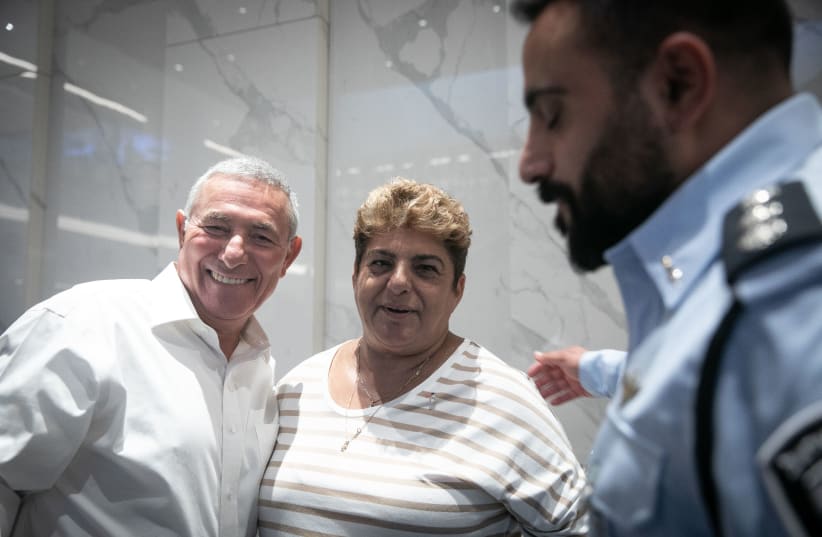
Rachel Edri, the woman who became famous in Israel after using food to distract Hamas terrorists holding her and her husband hostage in their home in Ofakim on October 7, revealed her secret cookie recipe on her new Instagram and TikTok accounts on Sunday.
Go to the full article >>October 7th Nova festival survivor reunites with civilian rescuer
Sati, a father of four, dropped everything on the morning of October 7th.
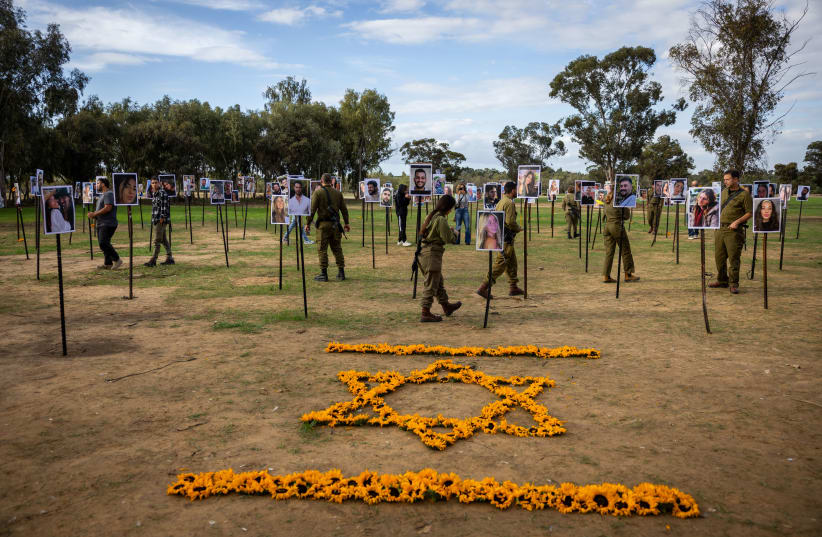
Two months after making a harrowing escape to safety from the October 7 Nova Music Festival massacre, tourist Natalie Sanandaji returned to Israel and reunited with the man who saved her life. Last week, Sanandaji was reunited with Moshe Sati, the man responsible for saving her life and helping her evacuate the festival.
Sati, a father of four, dropped everything on the morning of October 7th to aid in mass evacuating survivors from the Re'im-based Nova Music Festival. He arrived with his truck, saved people like Sanandaji, and met her when she returned to Israel.
Go to the full article >>The Hezbollah tunnel threat emerges again - analysis
The IDF is reportedly "conducting searches to locate any terrorist infrastructure."
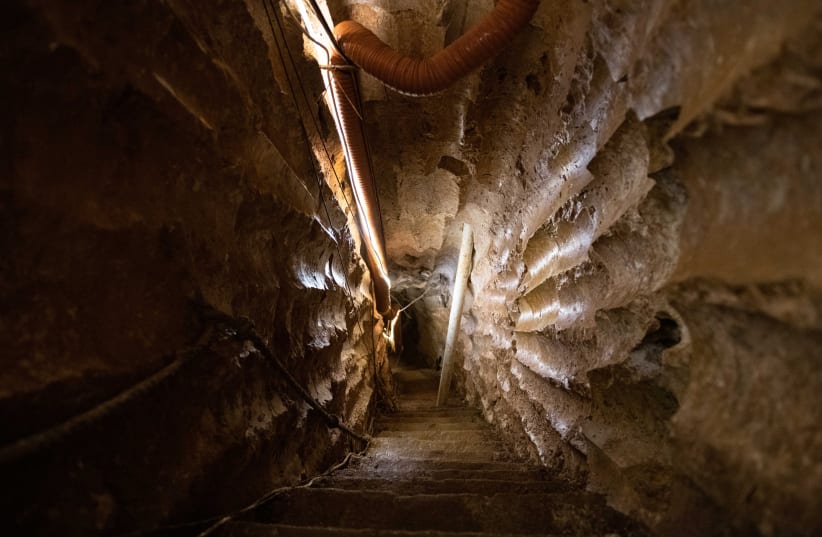
Five years after Israel launched Operation Northern Shield against Hezbollah cross-border tunnels, there are concerns about the Hezbollah tunnel threat again. It’s important to understand the context here. Hezbollah has extensive experience tunneling underground. Hamas tunnels have been discovered to be much larger and more extensive than previously thought. Therefore, is it possible the Hezbollah tunnel threat is also larger than previously believed?
Go to the full article >>Israel-Hamas War: What you need to know
- Hamas launched a massive attack on October 7, with thousands of terrorists infiltrating from the Gaza border and taking some 240 hostages into Gaza
- Over 1,200 Israelis and foreign nationals were murdered, including over 350 in the Re'im music festival and hundreds of Israeli civilians across Gaza border communities